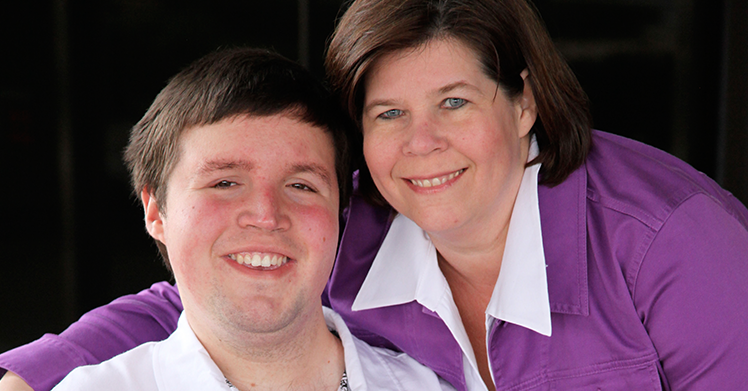
Frequently, I get calls from mothers/sisters/aunts of people living with Duchenne about issues related to being a carrier of Duchenne:
- Should they have carrier testing?
- Why should they have carrier testing?
- If they are carriers, what are their health risks?
- Are there health risks besides cardiac issues?
- Is their musculoskeletal pain related to their carrier status?
We really have so very little information about the female side of Duchenne.
To answer some of these very important questions, and possibly to apply some of those answers to our understanding of Duchenne in males, PPMD is supporting a robust study at Nationwide Children’s Hospital in Columbus, Ohio.
I am a mother of a child with Duchenne/Becker, but I am not sure if I am a carrier – can I participate?
The study will include 200 mothers of children who have a confirmed diagnosis of Duchenne/Becker. If mothers have not had genetic testing (blood test) to determine carrier status, this will be the first step and will determine which group (“cohort”) they are put into for the study:
- 150 moms who are found to have the genetic mutation in their blood (“somatic carriers”) will be enrolled (cohort A).
- 50 moms who do not have the genetic mutation in their blood, but who have children with Duchenne/Becker and are assumed to have the genetic mutation in their ovaries/eggs (“germline mosaic carriers”) will also be enrolled (cohort B).
The study will compare the results of these 2 groups with each other, as well as with 50 moms who do not have children with Duchenne/Becker (“age matched controls”)(cohort C).
If I am the mother of a child with Duchenne/Becker and want to participate, whom should I contact?
If you are a mother with a child who has been diagnosed with Duchenne/Becker, and would like to participate, please contact one of the study coordinators:
- Markus McColly: Markus.McColly@nationwidechildrens.org
- Daniel Jenkins: Daniel.Jenkins@nationwidechildrens.org
What will be evaluated during this study?
This two-year study will look at three areas that female carriers have said are meaningful to them—cardiac, musculoskeletal, and psychosocial—evaluating the affects of a lower level of dystrophin in the heart, skeletal muscles and brain.
I do not have a child with Duchenne/Becker, but I am a grandmother/sister/aunt of a person who has been diagnosed with Duchenne/Becker – can I participate?
The first phase of this study needs to concentrate only on mothers of children who have been diagnosed with Duchenne/Becker. It is important to fully understand the cardiac, musculoskeletal and psychosocial in somatic and germline mosaic carriers first. After this data is gathered, analyzed and understood, the study will be extended to other female family members.
Per Dr. Jerry Mendell:
“Nationwide Children’s Hospital Research Institute is characterizing the Mothers of DMD patients. This population has been chosen to compare “germline mosaic” carriers vs “somatic” carriers of the Duchenne gene. Germline mosaicism means that there has been a spontaneous mutation in the ovary of the mother that gives rise to Duchenne in the child. Somatic means that the mother has inherited the gene from the previous generation and has passed it on to her child. As far as we know, only somatic carriers have the risk of heart, skeletal muscle, and psychological/behavioral changes from the Duchenne gene mutation. Our study will fully characterize these changes. Three potential organs (heart, skeletal muscle, and brain) are at risk in Duchenne Carriers. This first study will allow us to establish the risks of each organ and their manifestations. We also don’t know if psychosocial stress could be present from the care of the Duchenne child that could affect heart or skeletal muscle function. We will do everything in the first year of the study to sort out these interactions and then extend the study to potential family members who want to participate. For example, we will know how to recognize MRI patterns in the heart indicative of the carrier state that can be applied to family members undergoing testing. If we study everyone who has a Duchenne relative from the start of the study it will restrict the accuracy of our observations and lead to false positive/negative conclusions. We don’t want to attribute a cardiac or even skeletal muscle finding to the Duchenne carrier state if it is due to something else. This would limit appropriate treatment for corrective action.
We intend to study all family members as we move forward but the study of Mothers of DMD boys is the starting step. The study is currently underway once this first study is complete we have every intention of extending this study to other family members.”
PPMD is extremely happy to participate in this important area of study.
Thank you to the team at Nationwide Children’s – we anxiously await your results!



 by: Parent Project Muscular Dystrophy
by: Parent Project Muscular Dystrophy

